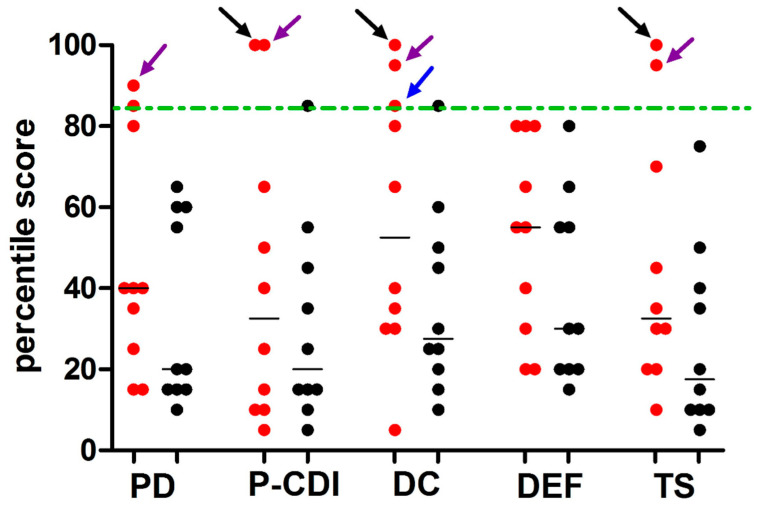Figure 1.
Distribution of PSI-SF percentile scores of subscales and total score from PCD mothers and controls. Legend: the parenting stress index-short form questionnaire (PSI-SF) was used to explore the stress levels in the mothers of primary ciliary dyskinesia (PCD) patients (n = 10) and of healthy controls (n = 10) younger than 15 years. The PSI-SF is organized intofour subscales: parental distress (PD), parent-child dysfunctional interaction (P-CDI), difficult child (DC), defensive responding (DEF). Each point (red and black for PCD patients and controls, respectively) represents the percentile score taken from a single participant. Horizontal bars represent the median values. Dashed lines indicate the 85th percentile (high stress level). Only 3 PCD mothers presented a pathologic percentile score: one (purple arrow) reported pathologic percentile score in PD, PCDI, DC subscales and in total score (TS); one (black arrow) reported pathologic percentile score in PCDI, DC and TS; one (blue arrow) reported a score equal to 85th percentile only in DC subscale. Both in subscales score and total score, the percentiles were not significantly different between patients and healthy controls (p > 0.05).

